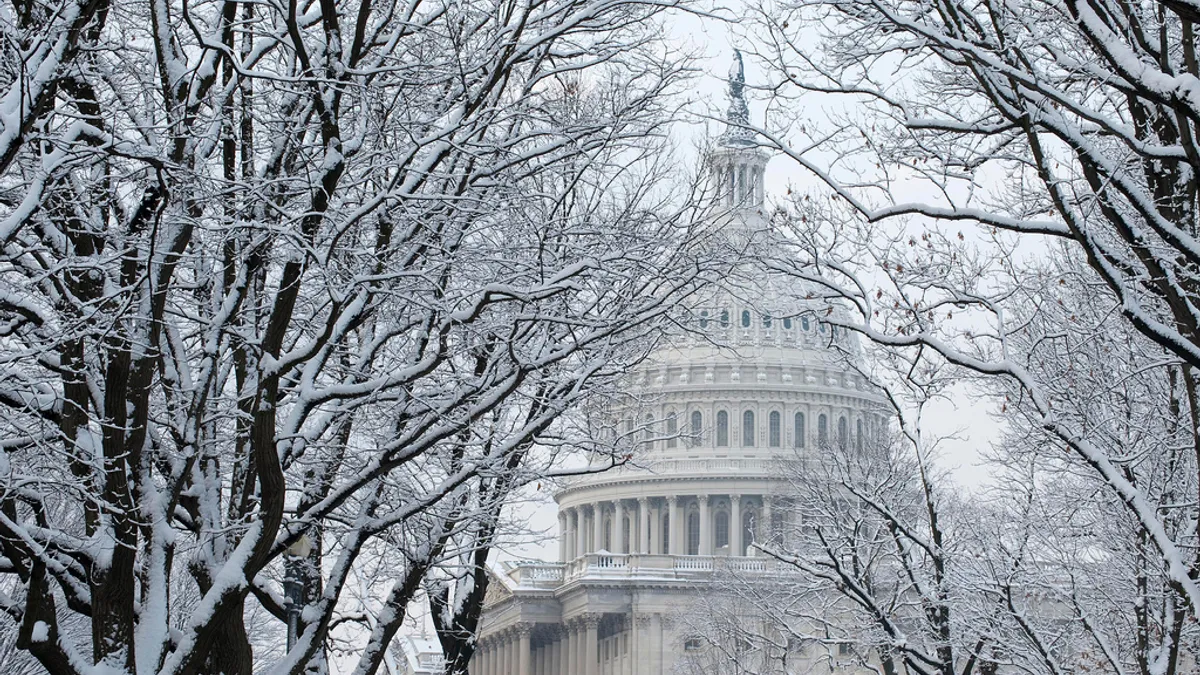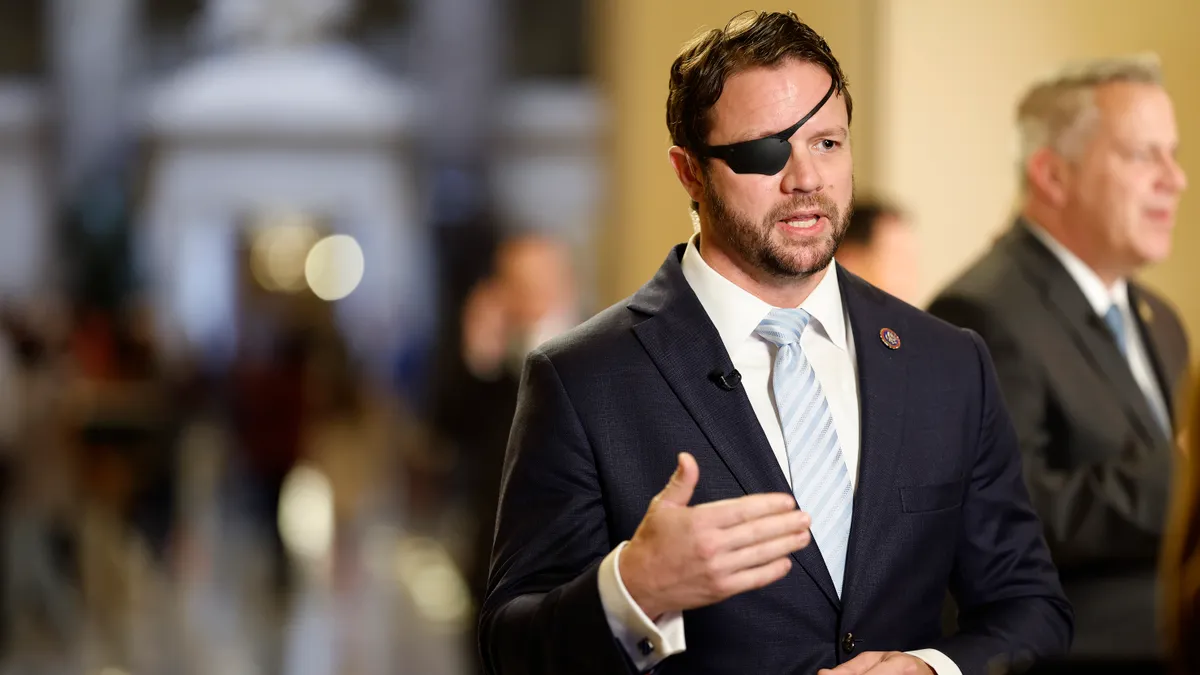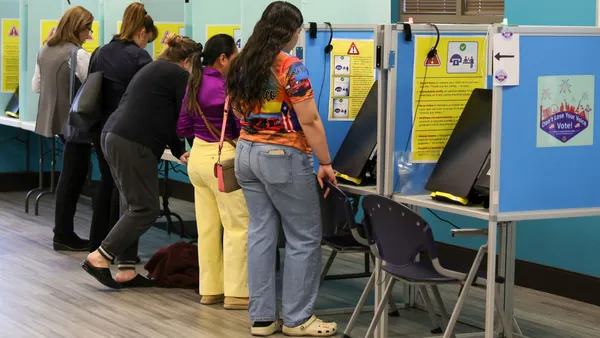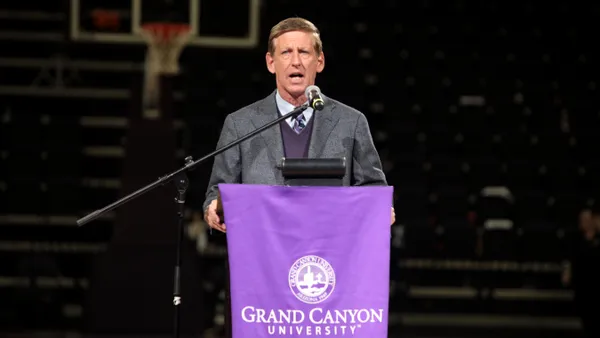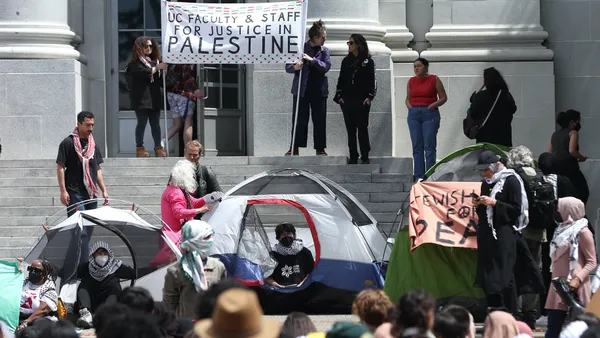Dive Brief:
- Last year's Republican-led tax overhaul inadvertently left many public universities exempt from a new 21% levy on the salaries of highly paid executives, Politico reported.
- The tax intended to single out nonprofits that paid some employees more than $1 million in total compensation. By applying it only to 501(c)(3) organizations, however, legislators overlooked the fact that many public universities don't fall under that category but instead exist as extensions of their state's government.
- Congress hopes to correct the error, which according to Politico could save some public universities millions, but has yet to make progress. Rep. Kevin Brady (R-Texas) put forth legislation that would apply the tax to all universities. Public and private institutions say the tax threatens the competitiveness of salaries for their medical schools, in particular.
Dive Insight:
The glitch in the tax law comes as college executives' pay continues to climb.
Public colleges paid their chief executives an average of about $560,000 in the 2016-17 academic year, up 5% from the year before, according to data compiled by The Chronicle of Higher Education. The highest-paid executives saw even larger jumps, with the top 20 leaders' average salary rising to $1.25 million, a nearly 28% year-over-year increase.
Private college leaders have also seen their pay rise. They earned an average of $570,000 in 2015, a 9% year-over-year increase. In 2016, 61 private college leaders reached the $1 million mark, compared to 12 public college leaders who did so in the 2016-17 academic year.
Some have speculated the new tax law could slow pay increases for college executives. But it remains to be seen how much of a competitive advantage the error would give public colleges over private ones if left uncorrected, and how it could affect compensation overall in higher ed if and when it is applied to all institutions.
It is certainly costing colleges. The mistake could allow the University of Alabama to sidestep more than $1.7 million in taxes for head football coach Nick Saban's compensation, which is roughly $8.4 million including bonuses. Meanwhile, Duke University will be subject to the tax for its men's basketball coach, Mike Krzyzewski, whose pay has consistently topped $5 million.
Base salary alone isn't driving top officials' compensation growth. College boards routinely offer potential executives hefty performance, completion and signing bonuses to motivate them to close the deal.
Out of 115 contracts for public university presidents, roughly one-third were eligible for performance bonuses, though only six included specific criteria needed to obtain them, according to an Inside Higher Ed analysis. Another 13% of contracts included completion bonuses, which were between $50,000 and $1 million.
As college presidents spend less time in the role, more boards are including deferred compensation in contracts. "If you look at the corporate world, that's clearly the direction [it] has gone in," James Finkelstein, who studies college compensation, told The Washington Post. "The theory is this will retain the talent."
Proponents of higher compensation for college executives argue they need to pay more to find leaders who have the skill set to take on the financial, public relations and political challenges higher education faces.
However, a recent study found paying public college presidents more does not lead to more state appropriations and, in some cases, may even cause lawmakers to be "turned off" by the high salaries.



